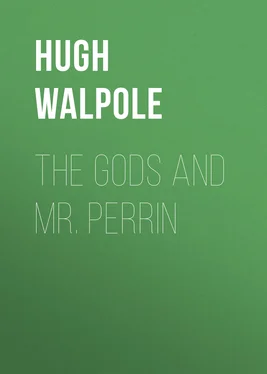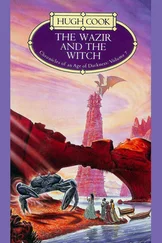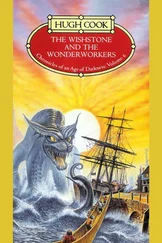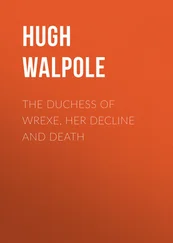Hugh Walpole - The Gods and Mr. Perrin
Здесь есть возможность читать онлайн «Hugh Walpole - The Gods and Mr. Perrin» — ознакомительный отрывок электронной книги совершенно бесплатно, а после прочтения отрывка купить полную версию. В некоторых случаях можно слушать аудио, скачать через торрент в формате fb2 и присутствует краткое содержание. Жанр: foreign_dramaturgy, foreign_antique, foreign_prose, на английском языке. Описание произведения, (предисловие) а так же отзывы посетителей доступны на портале библиотеки ЛибКат.
- Название:The Gods and Mr. Perrin
- Автор:
- Жанр:
- Год:неизвестен
- ISBN:нет данных
- Рейтинг книги:3 / 5. Голосов: 1
-
Избранное:Добавить в избранное
- Отзывы:
-
Ваша оценка:
- 60
- 1
- 2
- 3
- 4
- 5
The Gods and Mr. Perrin: краткое содержание, описание и аннотация
Предлагаем к чтению аннотацию, описание, краткое содержание или предисловие (зависит от того, что написал сам автор книги «The Gods and Mr. Perrin»). Если вы не нашли необходимую информацию о книге — напишите в комментариях, мы постараемся отыскать её.
The Gods and Mr. Perrin — читать онлайн ознакомительный отрывок
Ниже представлен текст книги, разбитый по страницам. Система сохранения места последней прочитанной страницы, позволяет с удобством читать онлайн бесплатно книгу «The Gods and Mr. Perrin», без необходимости каждый раз заново искать на чём Вы остановились. Поставьте закладку, и сможете в любой момент перейти на страницу, на которой закончили чтение.
Интервал:
Закладка:
But at the end of the first month Traill did not see these things as in any way ominous. He could keep his boys in order. He liked his game of football; he was in a glow because he was in love—moreover, he had never quarreled with anyone in his life. He did not know that he had made any progress with Isabel. It was very difficult to see her. She came down sometimes to watch them play football; after Chapel in the evening, he had walked up the little dark lane with her, the stars above the dark, cloudy trees, and the leaves a carpet about their feet—and at every meeting he loved her more. When he had spare hours in the afternoon he liked to walk to the Brown Wood or down to the sea. Once or twice he bicycled over to Pendragon and had tea with the Trojans. Sir Henry Trojan was a man who had appealed to him immensely. In spite of his size and strength and simplicity, his air of a man who lived out of doors and read little, he had a tremendous poetic passion for Cornwall. He showed Traill a great many things that were new to him. He began to feel a sense of color; he saw the Brown Wood, the twisting, gray-roofed village, the sweeping, striving sea with fresh vision. He stopped sometimes in his walks and drew a deep breath at the way that the lights and colors were hung about him. Of course the contrast of his school life drove these other things against him—and also his love for Isabel.
These little things would have no importance were it not that they all helped to blind him to his true relations with Perrin. He did not think about Perrin at all; he did not think about his life even in any very definite way.
He never analyzed things; he took things and used them.
And then at the end of that first month Birkland talked in the most amazing way....
Traill had been attached to Birkland from the first. The man had definite personality—aggressive in its influence—and contempt of the rest of the common room, but they justified it to some extent by their own terror of his tongue and their eager criticism of him behind his back.
He had treated Traill like the rest, but then Traill never noticed it. He was not afraid of Birkland, he never resented his criticism, and he appreciated his humor.
And then suddenly one evening Birkland asked him to come and see him. His room was untidy—littered with school-books, exercise-books, stacks of paper to be corrected; but behind this curtain of discomfort there were signs of other earlier things: some etchings, dusty and uncared for, sets of Meredith and Pater, some photographs, and a large engraving of Whistler’s portrait of his mother. The latticed window was open, and from the night outside, blowing into the gusty candles, there were the scent of decaying leaves and a faint breath of the distant sea.
Birkland was thin—sticks of legs and arms; a short, wiry mustache; heavy, overhanging eyebrows; thin, straight, stiff hair turning a little gray. He gave Traill a drink, watched him fill a pipe; and then, huddled in his armchair, his legs crossed under him, his eyes full on the open window and the night sky, he asked Traill questions.
“And so you like it?”
“Yes—immensely!”
“Why?”
“Well—why not? After all, it gives a fellow what he wants. There’s plenty of exercise—the hours are healthy—the fellows are quite nice fellows. I like teaching.”
Traill gave a sigh of satisfaction, and, after all, he had omitted his principal reason.
“Yes. How long do you mean to stay here?”
“Oh! a year, I suppose. Then I ought to get to Clifton.”
“Yes. You’d better not tell the Head that, though. How do you like the other men?”
“Oh, I think they ‘re very good fellows. Dormer’s splendid.”
“Yes—and Perrin?”
“Oh! he’s all right. He seems to get annoyed pretty easily. As a matter of fact, I have felt rather irritated once or twice.”
“Yes—everyone’s wanted to cut Perrin’s throat some time or other. As a matter of fact, I shouldn’t wonder if it was n’t the other way round—one day.”
There was a pause, and then Birkland said, “And so you like it.”
“Yes, of course; don’t you?”
Birkland laughed. There was a long pause. Then Traill said again, rather uncertainly, “Don’t you?”
He had never thought of Birkland as an unhappy man—as a matter of fact he never thought of people as being definite kinds of people, and he scarcely ever read novels.
Then Birkland spoke: “You had better not ask me that, young man, if you want an encouraging answer.”
Then very slowly, after another pause, the words came out: “I’m going to speak the truth to you to-night for the good and safety of your soul, and I haven’t cared for the good and safety of anyone’s soul for—well!—I should be afraid to say how long. I’m afraid—I don’t really care very much about the safety of yours—but I care enough to speak to you; and the one thing I say to you is—get out—get away. Fly for your life.” His voice sank to a whisper. “If you don’t, you will die very soon—in a year perhaps. We are all dead here, and we died a great many years ago.”
Traill moved uncomfortably in his chair. He smiled across the flickering candles at Birkland.
“Oh! I say,” he said, “that’s a bit of exaggeration, isn’t it? I suppose one is tired sometimes, of course; but, after all, there are a good many men in the country who make a pretty good thing out of mastering and are n’t so very miserable.”
It was evident that he thought that it was all a kind of joke on Birkland’s part. He pulled contentedly at his pipe.
But the other man went on: “I shouldn’t have said this at all if I hadn’t meant it, and if I hadn’t got twenty years of experience behind me to prove what I say. I don’t know why I’m bothering you, I’m sure; but now I’ve begun I’m going on, and you’ve got to listen. You can’t say you haven’t been given your chance. Have you ever looked round the common room and seen what kind of men they are?”
“Of course,” said Traill; “but,” he added modestly, “I’m not observant, you know. I’m not at all a clever kind of chap.”
“Well, you would have seen what I’m telling you written in their faces right enough. Mind you—what I’m saying to you doesn’t apply to the first-class public school. That’s a different kind of thing altogether. I’m talking about places like Moffatt’s—places that are trying to be what they are not—to do what they can’t do—to get higher than they can reach. There are thousands of them all over the country—places where the men are underpaid, with no prospects, herded together, all of them hating each other, wanting, perhaps, towards the end of term, to cut each other’s throats. Do you suppose that that is good for the boys they teach?”
He paused and relit his pipe, and his voice was, too, measured, but showing in its tensity his emotion.
“It’s a different thing with the bigger places. There, there is more room; the men don’t live so close together; they are paid better; there is a chance of getting a house; there is the esprit de corps of the school… but here, my God!”
Birkland bent forward, his face white, over the candles.
“Get out of it, Traill, you fool! You say, in a year’s time. Don’t I know that? Do you suppose that I meant to stay here for ever when I came? But one postpones moving. Another term will be better, or you try for a thing, fail, and get discouraged… and then suddenly you are too old—too old at thirty-three—earning two hundred a year… too old! and liable to be turned out with a week’s notice if the Head doesn’t like you—turned out with nothing to go to; and he knows that you are afraid of him and he has games with you.”
Читать дальшеИнтервал:
Закладка:
Похожие книги на «The Gods and Mr. Perrin»
Представляем Вашему вниманию похожие книги на «The Gods and Mr. Perrin» списком для выбора. Мы отобрали схожую по названию и смыслу литературу в надежде предоставить читателям больше вариантов отыскать новые, интересные, ещё непрочитанные произведения.
Обсуждение, отзывы о книге «The Gods and Mr. Perrin» и просто собственные мнения читателей. Оставьте ваши комментарии, напишите, что Вы думаете о произведении, его смысле или главных героях. Укажите что конкретно понравилось, а что нет, и почему Вы так считаете.











